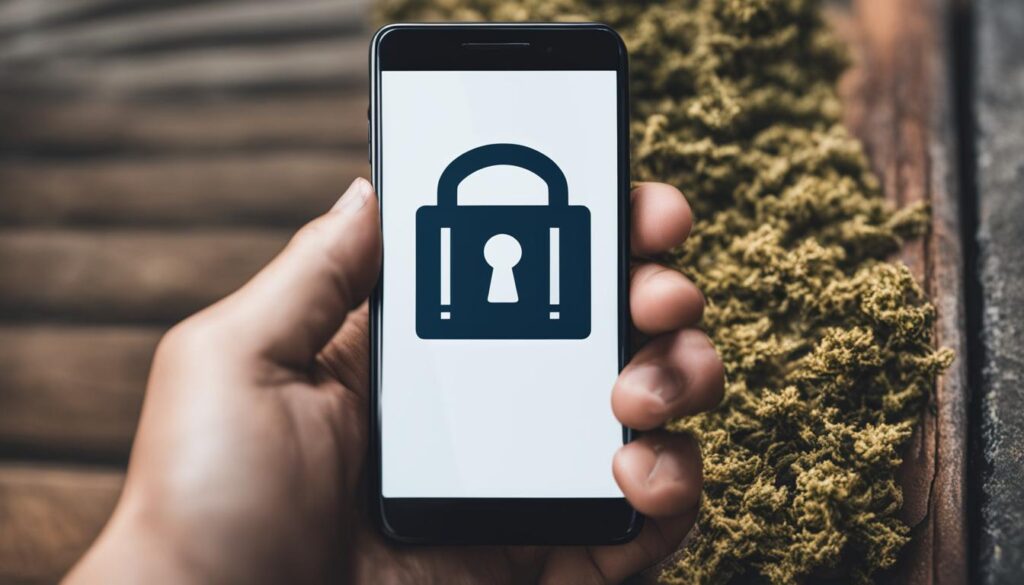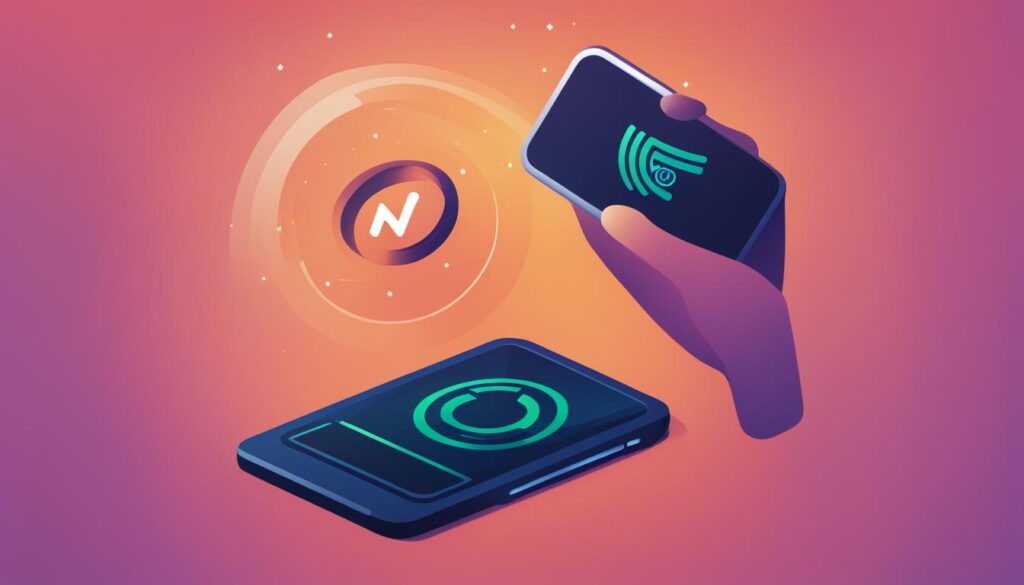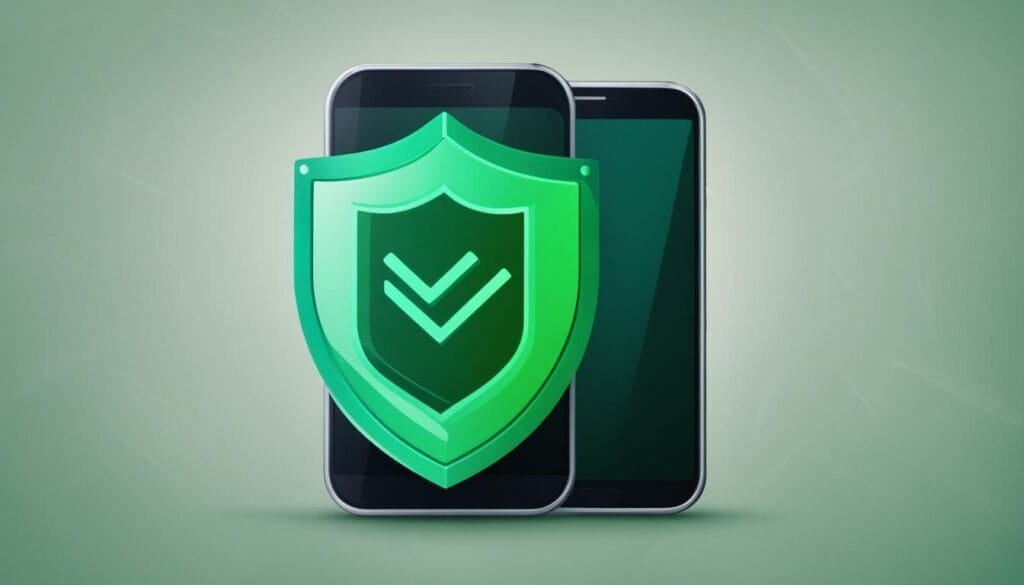Mobile payment security plays a vital role in ensuring safe and secure cashless transactions. With the increasing popularity of digital wallets and contactless payments, it is essential to adopt the right measures to safeguard your mobile payments. By understanding the importance of payment protection, transaction encryption, and secure transfers, you can enjoy the convenience of mobile payments without worrying about the safety of your sensitive information.
Key Takeaways:
- Mobile payment security is crucial for protecting your financial and personal information.
- Transaction encryption adds an extra layer of security during mobile payments.
- Secure transfers ensure that your payment details are transmitted safely.
- By adopting the right security measures, you can confidently embrace the convenience of digital wallets and contactless payments.
- Stay informed about the latest advancements in mobile payment protection to ensure a worry-free payment experience.
The Benefits of Virtual Cards for Payment Security
Virtual cards, such as Privacy Cards, provide a secure solution for online transactions, offering enhanced payment protection and peace of mind. These virtual cards generate unique 16-digit numbers for every payment, ensuring that your debit or credit card information remains private and protected. With virtual cards, you can enjoy secure checkout experiences and minimize the risk of exposing your sensitive financial details.
One of the key advantages of virtual cards is the ability to track your transactions easily. By using virtual cards, you can receive real-time notifications for each payment, allowing you to monitor your spending and identify any suspicious activity promptly. Additionally, virtual cards provide a convenient method for canceling subscriptions. Instead of going through the hassle of contacting multiple merchants to cancel subscriptions, you can simply disable or delete the virtual card associated with the subscription, saving you time and effort.
Virtual cards are particularly useful when navigating unfamiliar websites or dealing with potential data breaches. By using a virtual card for these transactions, you can add an extra layer of security, ensuring that your primary payment information remains protected. Virtual cards are an effective tool for safeguarding your financial details and minimizing the risk of fraudulent activities.
Overall, virtual cards offer numerous benefits for payment security. With their ability to provide unique card numbers for every transaction, real-time notifications, easy subscription management, and additional protection against data breaches, virtual cards are a valuable tool for ensuring a safe and secure online payment experience.
https://www.youtube.com/watch?v=9Gde8om–aw
Table: Comparing Virtual Cards
| Features | Privacy Card | Other Virtual Card |
|---|---|---|
| Unique Card Numbers | Yes | No |
| Real-Time Notifications | Yes | Varies |
| Subscription Management | Easy cancellation | Varies |
| Data Breach Protection | Yes | Varies |
The Security of Mobile Payment Methods
Mobile payment methods, such as Apple Pay, Google Pay, Microsoft Pay, and Samsung Pay, offer a more secure alternative to traditional plastic cards. These digital wallets utilize tokenization technology to create temporary card numbers that are encrypted and used for transactions. The tokens generated are not linked directly to your actual card or personal information, providing an additional layer of security.
By using mobile payment options, you can enjoy the convenience of quick transactions, especially when utilizing near-field communication (NFC) capabilities. Mobile payments are not only fast but also provide a secure way to pay for both credit and debit cards. With the ability to make mobile payments with just a few taps on your smartphone, you can minimize the risk of card skimming and fraud that may occur with physical cards.
Enhanced Security through Tokenization
Tokenization is a key feature of mobile payment methods, ensuring that your sensitive information remains protected. When you initiate a transaction, your digital wallet generates a unique token, which acts as a stand-in for your actual card details. This token is then encrypted and sent to the payment network, preventing your card information from being transmitted or stored with the merchant.
Even if a data breach were to occur, the stolen token would be useless without the corresponding cryptographic keys, making it highly secure. Additionally, mobile payment platforms often offer extra security measures such as biometric authentication, requiring a fingerprint or facial recognition to authorize transactions. This adds an extra layer of protection against unauthorized use of your mobile payment accounts.
The Advantages of Mobile Payment Methods
- Convenience: Mobile payments provide a convenient and hassle-free way to make transactions, eliminating the need to carry physical cards or cash.
- Speed: With mobile payments, you can complete transactions quickly, especially when using NFC technology.
- Accessibility: Mobile payment methods are widely accepted, allowing you to make payments at a variety of merchants.
- Rewards and Offers: Many mobile payment platforms offer rewards programs or exclusive discounts, providing additional incentives for using their services.

The Future of Mobile Payment Protection
As technology continues to advance, mobile payment security measures will continue to evolve and improve. The rise of biometric authentication, such as fingerprint and facial recognition, ensures that only authorized users can access mobile payment accounts. Additionally, advancements in encryption algorithms and tokenization techniques will enhance the overall security of mobile payment methods.
By staying informed about the security features and best practices associated with mobile payments, you can confidently embrace the convenience and security offered by these digital wallets. Utilizing trusted mobile payment platforms and regularly updating your device’s security settings will help to ensure a safe and secure mobile payment experience.
How to Safely Make Mobile Payments
When it comes to making mobile payments, ensuring the security of your payment information is paramount. By following some best practices, you can enjoy the convenience of mobile payments while protecting your financial data. Here are some essential steps to take:
Add a Mobile Payment App to Your Phone
Start by downloading a trusted mobile payment app such as Google Pay or Apple Pay. These apps provide a secure platform to store your payment information and facilitate contactless payments. Once downloaded, add your credit or debit card details to your digital wallet within the app.
Verify Merchant Acceptance
Before making a purchase, ensure that the merchant accepts mobile wallet payments. Look for the contactless payment symbol or inquire with the merchant if they accept mobile payments. This step ensures that your mobile payment will be processed securely and smoothly.
Authenticate Your Payment
When making a mobile payment, position your phone close to the card terminal or NFC reader. At this point, you’ll need to authenticate your payment. Depending on your device, you can use a password, fingerprint, or facial recognition to verify your identity and authorize the payment. This additional layer of authentication enhances the security of your transaction.
By following these steps, you can make mobile payments with confidence, knowing that your payment information is secure. Mobile payments provide a convenient and secure way to pay for both credit and debit cards, making them an excellent choice for cashless transactions.

Mobile Payment Security and Convenience
Mobile payments have revolutionized the way we make transactions, offering a convenient and secure alternative to traditional payment methods. The convenience of mobile payments is unmatched, as nearly everyone carries their smartphones wherever they go. With just a few taps, you can make digital purchases, pay for subscriptions, and enjoy the ease of contactless transactions.
One of the key advantages of mobile payments is the speed at which transactions can be completed. Unlike traditional card swipes or cash exchanges, mobile payments offer a seamless and efficient process. With near-field communication (NFC) capabilities, you can simply tap your device on a contactless payment terminal and authorize the payment with a password or fingerprint.
Mobile payments also provide a high level of security, ensuring that your personal and financial information is protected. Digital wallets, such as Apple Pay and Google Pay, use tokenization technology to encrypt your payment details. This means that your actual card information is not shared with the merchant, reducing the risk of data breaches or fraud. Additionally, mobile payment apps offer features like transaction notifications and the ability to easily cancel subscriptions, providing an extra layer of control over your payments.
As technology continues to advance, mobile payment security will evolve to meet emerging threats and provide even greater protection for users. It is important to stay vigilant and choose reputable mobile payment service providers to ensure a worry-free experience. With the convenience and security of mobile payments, you can confidently embrace a cashless future.
The Role of Personal Information and Privacy
Protecting personal information is a top priority when it comes to mobile payment security. When signing up for mobile payment services, it is common to be required to provide personal information for identity verification purposes. However, reputable mobile payment providers understand the importance of safeguarding this information and prioritize its security.
One way to enhance personal information security is by utilizing Privacy virtual cards. These virtual cards offer an added layer of protection against data breaches. In the unfortunate event of a breach, Privacy virtual cards allow you to easily pause or close the virtual card associated with the compromised information, without impacting your other cards. This provides peace of mind knowing that your financial and personal information is safe.
When choosing a mobile payment provider, it is crucial to review their privacy policies and ensure they have proper security measures in place. Trusted service providers prioritize the security of your personal information and have robust systems in place to protect against unauthorized access.
Enhancing Personal Information Security
To further enhance personal information security, consider the following best practices:
- Regularly review your mobile payment activity and transaction history to identify any suspicious or unauthorized transactions.
- Enable two-factor authentication for an extra layer of security when logging into your mobile payment accounts.
- Use strong, unique passwords for each of your mobile payment accounts.
- Avoid sharing personal information, such as account details or verification codes, with anyone.
- Be cautious of phishing attempts and only provide personal information through secure and trusted channels.
Remember, protecting your personal information is essential for maintaining mobile payment security. By choosing reputable service providers, understanding their privacy policies, and implementing best practices, you can confidently enjoy the convenience of mobile payments while safeguarding your personal and financial information.

Conclusion
Ensuring mobile payment security is crucial in today’s digital world. By adopting best practices, such as using virtual cards and secure payment apps, you can safeguard your transactions and enjoy the convenience of cashless payments.
Virtual cards, like Privacy Cards, offer enhanced security by generating unique numbers for each transaction, reducing the risk of exposing your debit or credit card information. These cards are particularly helpful when dealing with potential data breaches or when making purchases on unfamiliar websites.
Mobile payment methods, such as Apple Pay, Google Pay, Samsung Pay, and Microsoft Pay, provide an additional layer of security through tokenization technology. These digital wallets create temporary card numbers that are encrypted and used for transactions, ensuring that your actual card or personal information is not directly linked.
By following these measures and staying vigilant, you can make secure mobile payments and enjoy the convenience of fast and convenient cashless transactions. Choose reputable service providers, review their privacy policies, and stay informed about the latest security advancements to ensure a worry-free mobile payment experience.
FAQ
Is mobile payment security important?
Yes, mobile payment security is crucial to protect your personal and financial information during cashless transactions.
What are virtual cards and how do they enhance security?
Virtual cards, like Privacy Cards, generate unique numbers for each payment, reducing the risk of exposing your card information. They provide added security for online transactions and allow for easy tracking and cancellation of subscriptions.
Are mobile payment methods more secure than traditional cards?
Yes, mobile payment methods like Apple Pay and Google Pay use tokenization technology and encryption to create temporary card numbers, making them generally more secure than plastic cards.
How do I make safe mobile payments?
Download a mobile payment app like Google Pay or Apple Pay, add your payment information to your digital wallet, and make sure the merchant accepts mobile wallet payments. Authenticate with a password or fingerprint and position your phone close to the card terminal for secure transactions.
What are the benefits of mobile payments?
Mobile payments offer convenience, quick transactions, and can be used for various purposes like online purchases, paid apps, and subscriptions.
How is personal information handled in mobile payments?
Reputable mobile payment providers prioritize the security of personal information. Privacy virtual cards offer measures like easy card pausing or closure in the event of a data breach.
How Can Securing Mobile Payments Also Help Secure Mobile Banking?
As mobile payments gain popularity, securing them becomes crucial in protecting users’ transactions and personal information. By implementing robust security measures, including encryption and multi-factor authentication, mobile payment platforms can also enhance the security of mobile banking. By ensuring secure mobile banking now, financial institutions can prevent unauthorized access and mitigate the risk of fraudulent activities, guaranteeing a safe and seamless experience for users.


Pingback: Credit Control: How Mobile Banking Affects Your Credit Score – Straight Fire Money